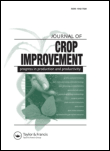
TRANSGENIC RESEARCH
Scope & Guideline
Transforming Agriculture through Genetic Engineering
Introduction
Aims and Scopes
- Transgenic Plant Development and Improvement:
Research dedicated to the genetic modification of plants to enhance traits such as pest resistance, abiotic stress tolerance, and improved nutritional quality through techniques like CRISPR/Cas9 and Agrobacterium-mediated transformation. - Transgenic Animal Models:
Focus on creating and characterizing transgenic animal models for studying human diseases, gene functions, and therapeutic interventions, utilizing advanced genetic engineering techniques. - Gene Editing Technologies:
Exploration and application of cutting-edge gene editing technologies, including CRISPR/Cas9, TALENs, and ZFNs, to facilitate precise modifications in various organisms. - Public Perception and Regulatory Aspects:
Research addressing the societal implications, regulatory frameworks, and public perception surrounding genetically modified organisms, particularly in agriculture and medicine. - Functional Genomics and Biotechnology:
Investigative studies that examine gene function, regulation, and expression in transgenic organisms, contributing to the understanding of complex biological processes. - Biosafety and Environmental Impact Studies:
Assessments of the ecological and health impacts of transgenic organisms, focusing on biosafety regulations and the sustainable use of biotechnology in agriculture.
Trending and Emerging
- CRISPR/Cas9 and Advanced Gene Editing Techniques:
There is a marked increase in studies utilizing CRISPR/Cas9 technology and its derivatives for precise genome editing in both plants and animals, indicating a shift towards more sophisticated genetic manipulation methods. - Transgenic Approaches for Climate Resilience:
Emerging research focuses on developing transgenic crops that can withstand climate change-related stresses, such as drought and salinity, reflecting an urgent need for sustainable agricultural solutions. - Gene Drive Technologies:
The exploration of gene drive mechanisms for controlling pest populations and disease vectors is gaining traction, showcasing innovative approaches to address public health and ecological challenges. - Public Engagement and Policy Implications:
Increasing attention is being paid to the societal impacts of transgenic technologies, with a growing number of studies addressing public perceptions, ethical considerations, and regulatory frameworks. - Biomanufacturing and Synthetic Biology:
Research is trending towards the use of transgenic organisms for biomanufacturing applications, including the production of pharmaceuticals, biofuels, and other valuable compounds, indicating a shift towards industrial biotechnology. - Functional Genomics and Precision Medicine:
There is a rising interest in using transgenic models for functional genomics studies that inform precision medicine, particularly in understanding complex diseases and developing targeted therapies.
Declining or Waning
- Traditional Genetic Engineering Methods:
Research in traditional genetic engineering techniques, such as the use of random insertion methods, is decreasing as newer, more precise methods like CRISPR/Cas9 gain favor in the scientific community. - Animal Models for Basic Research:
The focus on using transgenic animals for basic biological research is declining as studies increasingly prioritize disease modeling and therapeutic applications over fundamental biological inquiries. - Conventional Crop Improvement Techniques:
The emphasis on conventional breeding techniques is diminishing, overshadowed by the rapid advancements in genomic technologies that enable more efficient and precise genetic modifications. - Studies on Transgene Stability in Conventional Contexts:
Research focusing on the stability of transgenes in traditional agricultural contexts is waning as the focus shifts towards integration of transgenic technologies with precision agriculture and sustainable practices.
Similar Journals

CRISPR Journal
Fostering Collaboration in Genetic InnovationThe CRISPR Journal, published by MARY ANN LIEBERT, INC, is a pioneering platform dedicated to advancing the field of genetics and biotechnology through innovative research focused on CRISPR technology and its diverse applications. With an impressive Q1 ranking in both Biotechnology and Genetics for 2023, this journal is positioned among the leading publications in its field, showcasing groundbreaking studies from 2019 to 2024. While currently utilizing a subscription model, the journal's commitment to open science is reflected in its efforts to make high-quality research accessible to researchers, professionals, and students. The CRISPR Journal facilitates the dissemination of knowledge related to genomic editing technologies, fostering collaboration and advancing the understanding of gene manipulation, therapeutic techniques, and agricultural innovations. As a valuable resource for cutting-edge developments in the biochemistry and genetics landscape, this journal is essential for those seeking to stay at the forefront of CRISPR research and applications.

EFSA Journal
Fostering innovation in animal and food sciences.EFSA Journal, published by Wiley, stands as a premier open-access platform dedicated to the fields of animal science, food science, and veterinary studies, among others. Since its inception in 2003, this journal has contributed significantly to the dissemination of high-quality research, fostering collaboration and innovation across various disciplines. With an impressive impact highlighted by its Q1 quartile rankings in multiple categories including Animal Science, Food Science, and Parasitology, the journal upholds rigorous standards and a commitment to advancing knowledge. Researchers and professionals benefit from the wide-ranging scope and high visibility of published works, thereby enhancing their scholarly impact. For academics seeking excellence in open-access publishing, EFSA Journal represents a vital resource from the United Kingdom, ensuring that critical insights into food safety, biotechnology, and environmental sciences reach a global audience.

Horticultural Plant Journal
Elevating Standards in Plant Science and SustainabilityThe Horticultural Plant Journal, published by KEAI PUBLISHING LTD, stands at the forefront of horticultural research and innovation. With an ISSN of 2095-9885 and an E-ISSN of 2468-0141, this open access journal has been committed to disseminating significant findings in horticulture since 2015. As of 2023, it proudly holds prestigious Q1 rankings across multiple categories, including Biochemistry, Genetics and Molecular Biology, Ecology, and Plant Science, reflecting its impactful contributions to diverse scientific fields. Located in Beijing, China, the journal not only facilitates groundbreaking studies but also provides crucial insights into sustainability and environmental issues, being ranked in the top tiers of relevant disciplines. This makes it an invaluable resource for researchers, professionals, and students who aim to stay at the cutting edge of horticultural science, offering them the latest research that informs both academic understanding and practical application.

Frontiers in Genome Editing
Pioneering the Future of Genetic InnovationFrontiers in Genome Editing, published by FRONTIERS MEDIA SA, stands at the forefront of genomic research, specializing in the rapidly evolving realm of gene editing technologies. With an enthusiastic commitment to open access since 2020, this journal facilitates unrestricted distribution of cutting-edge research, making significant advancements in biotechnology and genetics accessible to a global audience. Located in Lausanne, Switzerland, Frontiers in Genome Editing publishes high-quality, peer-reviewed articles that contribute to the understanding and application of genome editing tools, such as CRISPR and TALEN, in various biological fields. Notably, as of 2023, the journal holds a prestigious Q1 ranking in Biotechnology and a Q2 ranking in Genetics, underscoring its importance and influence within these disciplines. With robust Scopus rankings, including a notable percentile placement, Frontiers in Genome Editing is an invaluable resource for researchers, professionals, and students dedicated to the promising future of genomic innovation.

aBIOTECH
Innovating agronomy through impactful research.aBIOTECH, published by SPRINGERNATURE, is a premier academic journal dedicated to advancing the fields of biotechnology, agronomy, and molecular biology. With an impressive ISSN of 2096-6326 and E-ISSN 2662-1738, this journal has established itself as a vital resource for researchers and professionals aiming to publish high-quality, impactful studies. Based in Singapore, aBIOTECH has achieved remarkable recognition, boasting a Q1 ranking in multiple categories including Agronomy and Crop Science, Biochemistry, and Genetics in the 2023 Scopus rankings. Its solid position in the 90th percentile for Biochemistry and Genetics reinforces its significance within the global scientific community. The journal covers a broad spectrum of topics relevant to both basic and applied research, facilitating a shared dialogue amongst scientists and encouraging collaborative progress in innovative biotechnological applications. The open-access nature of the journal ensures that cutting-edge research is freely available, fostering a global exchange of ideas that is critical to the advancement of science today.

Plant Biotechnology Reports
Elevating the Standards of Plant BiotechnologyPlant Biotechnology Reports is a premier academic journal published by SPRINGER, focusing on cutting-edge research in the dynamic fields of biotechnology and plant sciences. With an ISSN of 1863-5466 and an E-ISSN of 1863-5474, this journal serves as a vital platform for disseminating high-quality studies from 2008 to 2024. Situated in Japan, it has earned commendable status within the academic community, ranking in the Q2 quartile for Plant Science and Q3 for Biotechnology in 2023, placing it among the top-tier publications in its domain. Notably, it ranks #160/516 in the Scopus category for Agricultural and Biological Sciences - Plant Science, reflecting its impact and reach in the relevant fields. While it does not currently offer open access, the journal remains an essential resource for researchers, professionals, and students eager to explore breakthroughs in plant biotechnology. Researchers contribute significant advancements that not only drive scientific understanding but also foster innovation in agricultural practices, making this journal pivotal for both academic and practical applications in the realm of biotechnology.

JOURNAL OF PLANT BIOLOGY
Fostering Collaboration for Ecological InsightsJOURNAL OF PLANT BIOLOGY, published by SPRINGER HEIDELBERG, is a leading academic journal dedicated to advancing the field of plant science. With an impressive impact factor signifying its high citation rate and rigorous peer-review process, this journal ranks in the Q1 category within Plant Science, placing it among the top-tier periodicals in the discipline. Established in 1999, it has become an essential resource for researchers, professionals, and students seeking the latest findings and developments in plant biology. The journal fosters a collaborative environment for sharing innovative research, exploring ecological interactions, and understanding plant physiology, thereby contributing significantly to advancements in sustainable agriculture and environmental conservation. Its high Scopus ranking of 102 out of 516 in the category of Agricultural and Biological Sciences further underscores its relevance and impact within the scientific community. For those interested in cutting-edge research, JOURNAL OF PLANT BIOLOGY is a vital source of knowledge, offering insights that are crucial for the future of plant science.

BMC PLANT BIOLOGY
Connecting Ideas, Growing KnowledgeBMC Plant Biology, published by BMC, is a leading open-access journal devoted to the field of plant science, presenting high-quality research that contributes significantly to the understanding of plant biology. Since its inception in 2001, the journal has established itself as a prominent platform for disseminating innovative research, achieving a commendable Q1 ranking in Plant Science within the 2023 Scopus quartiles, and ranking #39 out of 516 journals in the Agricultural and Biological Sciences category, indicating its substantial impact with a 92nd percentile ranking. Researchers, professionals, and students engaged in the study of plant biology will find a wealth of knowledge in its comprehensive scope, covering critical areas such as molecular biology, genetics, ecology, and biotechnology. The journal's commitment to open access ensures that cutting-edge research is available to a global audience, fostering collaboration and advancement in the field. BMC Plant Biology continues to inspire and facilitate growth in plant-related studies, making it an invaluable resource for anyone interested in the vibrant and essential domain of plant science.

Journal of Crop Improvement
Transforming agriculture with pioneering insights.The Journal of Crop Improvement, published by Taylor & Francis Inc, is an esteemed platform dedicated to advancing the field of agronomy and crop science. With an ISSN of 1542-7528 and an E-ISSN of 1542-7536, this journal boasts a commendable reputation, reflected in its 2023 quartile rankings—notably, Q2 in Agronomy and Crop Science and Q2 in Plant Science, positioning it among the leading publications within its category. The journal encompasses a wide range of topics related to crop enhancement, sustainable agriculture, and genetic advancements, catering to the needs of researchers, industry professionals, and students alike. Although it currently does not provide open access, the Journal of Crop Improvement plays a crucial role in disseminating pioneering research aimed at improving crop resilience, yield, and quality. By maintaining a focus on innovative studies and empirical findings, the journal supports the global agricultural community in addressing the challenges posed by climate change and food security.

Frontiers in Plant Science
Fostering breakthroughs in plant physiology and ecology.Frontiers in Plant Science is a premier open-access journal dedicated to advancing the understanding of plant biology, covering a broad spectrum of topics including physiology, ecology, and biotechnology. Published by FRONTIERS MEDIA SA in Switzerland, this journal has established itself as a key resource in the field of plant science, boasting an impressive impact factor and ranking in the Q1 category for plant science as of 2023. With its Scopus rank of 61 out of 516 in both Agricultural and Biological Sciences, the journal is recognized for its quality and relevance, being in the 88th percentile among its peers. Since its inception in 2010, Frontiers in Plant Science has embraced an open-access format, ensuring that cutting-edge research is readily available to scientists, professionals, and educators around the globe. The journal aims to foster innovative research and collaboration within the plant science community, making it an essential publication for those looking to stay at the forefront of the discipline.